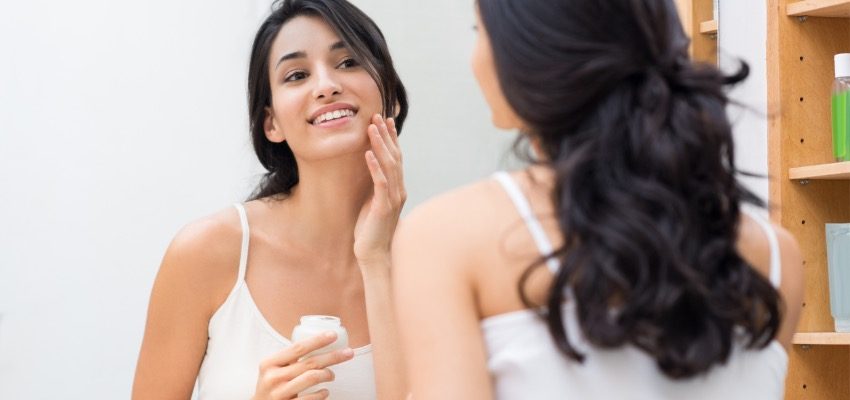Gene of the Week: NQO1 (Skin Renewal)

There are around 30,000 genes in the human genome. In this weekly series, we’ll write about a new gene featured in Orig3n DNA tests, so you can discover the kinds of information genetic assessments can offer you. Have you ever wondered how or why your skin appears to be more or less youthful with the passing years? There’s a gene for that™!
Spring is on the way, and you know what that means, more time outside! While we’re rejoicing over the shift in weather (and the idea of exercising and grilling outside) it’s important to be mindful of how the environment can impact our bodies. As a result, this week we’re talking about the NQO1 gene and something called, oxidative stress.
The NQO1 gene affects your skin aging process.
Do you find that your skin ages more quickly? Do your friends frequently tell you that you have more youthful looking skin?
What is oxidative stress and how does it work?
We are all familiar with what happens to an apple or metal when it is exposed to air overtime — the apple turns brown and the metal begins to rust. Well, believe it or not, oxidation has a similar effect on our bodies!
Oxidation is the process that occurs when something is exposed to oxygen. The two main sources of oxidants (things that oxidize) are internal and environmental sources. Antioxidants help protect our bodies from the damaging effects of oxidants. If antioxidant levels are low, however, they will be unable to counteract these effects.
The NQO1 gene is responsible for reducing the number of iron-mediated reactive oxygen species (ROS) created by oxygen. NQO1 is a protein found in the mitochondria—aka the powerhouse of the cell. Therefore, NQO1 has a role in energy use and oxidation in the cell. As we age, our mitochondrial function naturally declines, enhancing the importance of certain genes that help keep us looking and feeling younger, like NQO1. Variants in the NQO1 gene have been associated with the rate of skin aging and the body’s level of protection against environmental factors like air pollutants, cigarette smoke, and UV radiation.
Which result do I have?
The three variants for NQO1 are AA, AG, and GG. A result of AA is rare and means that your body is likely very sensitive to environmental oxidative damage and therefore plays a major role in your skin-aging process. You may want to consider taking precautionary measures like limiting your time in the sun and using sunscreen, using skin scrubs to remove pollutants, and using serums, creams, masks, and products that contain antioxidant compounds. Eating a good diet rich in antioxidants may also be helpful.
An AG result is considered normal and means that you are moderately sensitive to oxidative damage due to environmental effects, and therefore, oxidative stress will play a major roll in your skin aging process. Like those with the AA variant, it is important to decrease your exposure to oxidants from environmental sources. You can also consult an in-store beauty advisor, licensed aesthetician, or dermatologist for further recommendations.
The GG result is the most common and is found in 50% of the population. If you have a result of GG, you may have a genetic advantage when it comes to skin aging, meaning your body is more likely to maintain youthful skin and your cells have a natural ability to counter damaging environmental factors. Regardless of your gifted genetic tendencies, you should still try to decrease oxidative stress by limiting your exposure to the environmental factors mentioned above.
For more information, check out our LifeProfile app and as always, remember that genetics aren’t everything. DNA may give you a tendency to be better at this or not as great at that, but proper care and self-awareness can help limit your exposure to damaging environmental oxidants. Monitor your skin health with your own NQO1 result, available in Orig3n’s Beauty and Skin Aging DNA tests.
Ready to discover what your beauty genes say about you?
Discover Orig3n’s full product selection here.